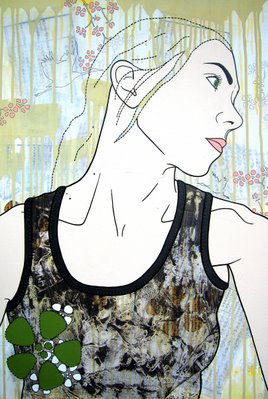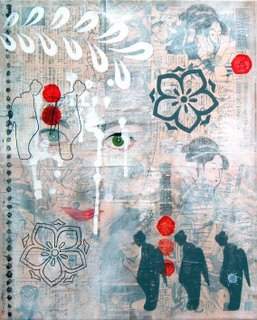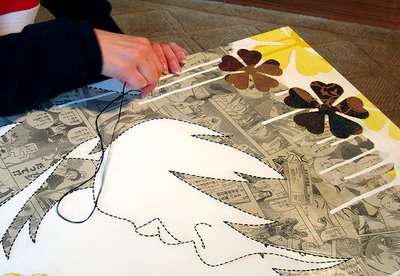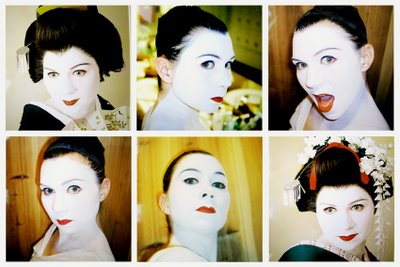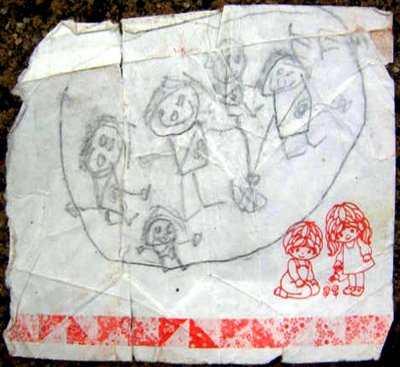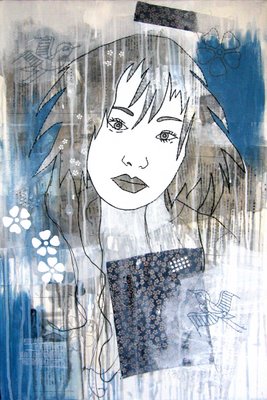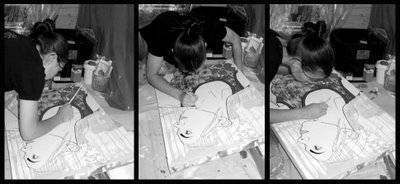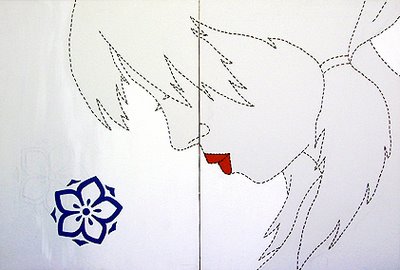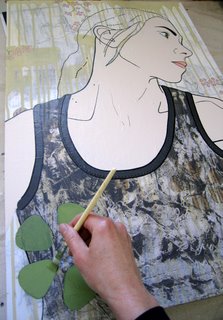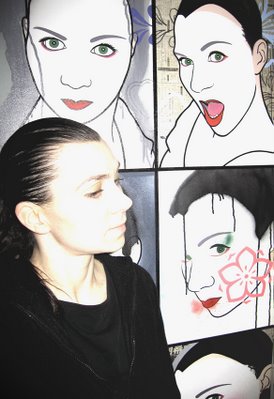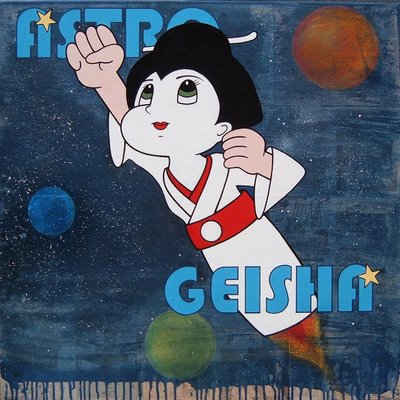 During a recent discussion with a Berlin gallerist, Louise Bourgeois's name was mentioned, reminding me of the book I have on her. I plucked it from my shelf today and almost every page is a reminder of why she is, for me, such an influential and inspirational artist.
During a recent discussion with a Berlin gallerist, Louise Bourgeois's name was mentioned, reminding me of the book I have on her. I plucked it from my shelf today and almost every page is a reminder of why she is, for me, such an influential and inspirational artist.
I was fortunate enough to see an exhibition of her work, (mostly drawings), whilst I was is Dublin a couple of years ago. I had no idea it was showing and when I entered the gallery to discover a Bourgeois exhibition I was delighted and extremely grateful.She was first brought to my attention around five or six years ago when I was staying at a friend's, (artist, Margarita Georgiadis), place in Sydney. Margarita and I were writing stream of consciousness prose together when she showed me her copy of Louise Bourgeois, Destruction of the Father, Reconstruction of the Father. As soon as I returned to Melbourne I went straight to the Arts Bookshop and adopted my own copy.
The book is full of intimate, intricate and informative excerpts in the form of diary notes, artist statements, autobiographical notes, interviews and acceptance speeches. There are a few I wish to catalogue here.
An artist's words are always to be taken cautiously. The finished work is often a stranger to, and sometimes very much at odds with what the artist felt or wished when he began. At best the artist does what he can, rather than what he wants to do. After the battle is over and the damage faced up to, the result may be surprisingly dull - but sometimes it is surprisingly interesting. The mountain brought forth a mouse, but the bee will create a miracle of beauty and order. Asked to enlighten us on their creative process, both would be embarrassed, and probably uninterested. The artist who discusses the so-called meaning of his work is usually describing a literary side-issue. The core of his original impulse is to be found, if at all, in the work itself.
- Louise Bourgeois, from an article published in 1954 in Design Quarterly, no. 30.
...and this, from 'Forum: Women in Art' in the February 1971 edition of Arts magazine when asked by Cindy Nemser: How do you feel about the position of women in the art world today?
Louise Bourgeois: A woman has no place as an artist until she proves over and over that she won't be eliminated.
...and these two statements from 1979:
I didn't have the security of any kind of religion, so in the end, that is how I became an artist - to find a mode of survival.
*******
I have had a guilt complex about pushing my art, so much so that every time I was about to show I would have some sort of attack. So I decided it was better simply not to try. It was just that I had the feeling the art scene belonged to the men, and that I was in some way invading their domain. Therefore the work was done and hidden away. I felt more comfortable hiding it. On the other hand, I destroyed nothing. I kept every fragment.
Nowadays, however, I am making an effort to change.
...and this; On Teaching Art, (previously unpublished), from the 1990's:
To be born an artist is both a privilege and a curse. How can it be taught? It is not possible to become one, you can just accept or refuse the gift. It is not in my power or is it my responsibility or am I willing to try the impossible aim [of] teaching someone to "become" an artist.
However, we can talk about Art Education until the cows come home. It is nice and it can even be funny.
Artists in the medical profession (Therapy) could be invaluable [teachers] because of their insight and their access to the unconscious - their tolerance and understanding of the disturbed.
...and finally, when asked in 1971, by Alexis Rafael Krasilovsky, (question 51 of 61):
Louise answered: I work like a bee and feel that I accomplish little.
Bourgeois will turn 95 this year. That in it self is a huge accomplishment, but she has accomplished so much more.
 I have recently fallen in love with, and been inspired by, the work of German Dada artist Hannah Hoch. Viewing her work recently has restored, or rather enhanced, my interest in the medium of collage.
I have recently fallen in love with, and been inspired by, the work of German Dada artist Hannah Hoch. Viewing her work recently has restored, or rather enhanced, my interest in the medium of collage.

